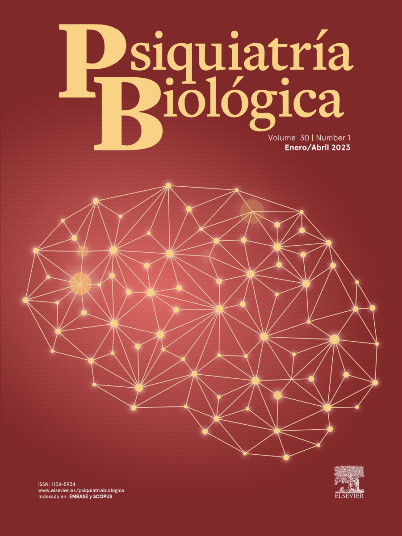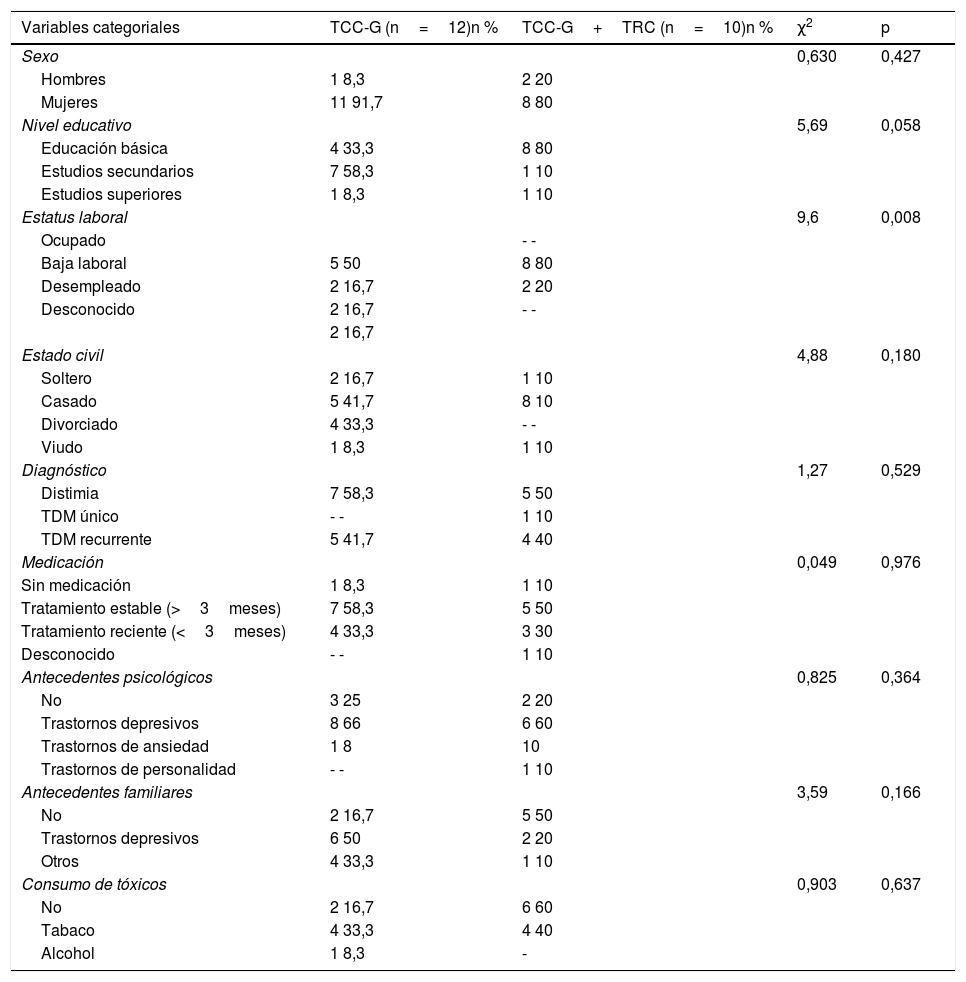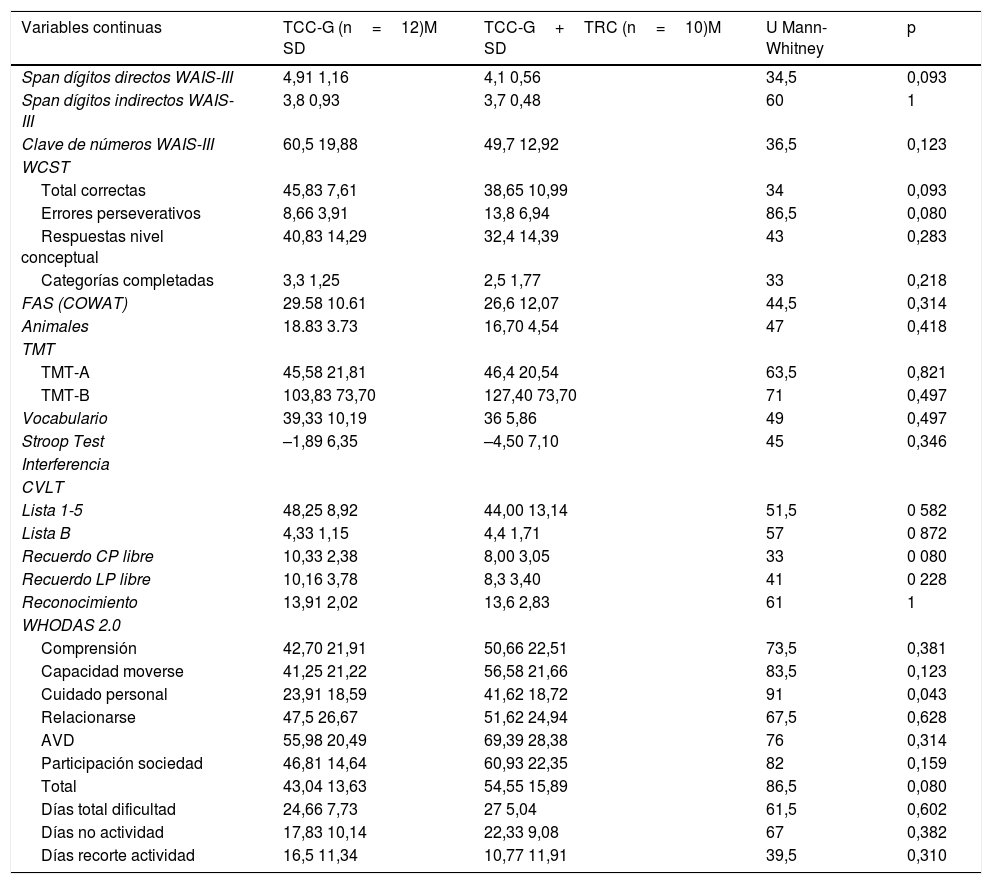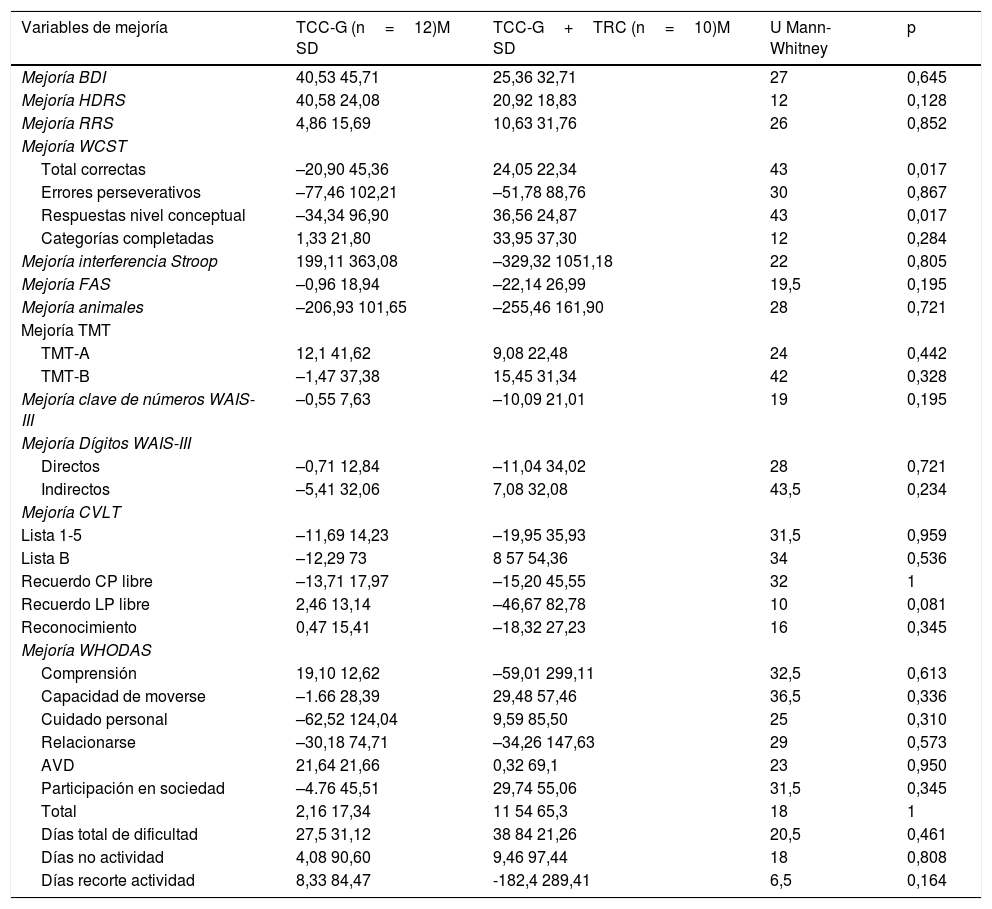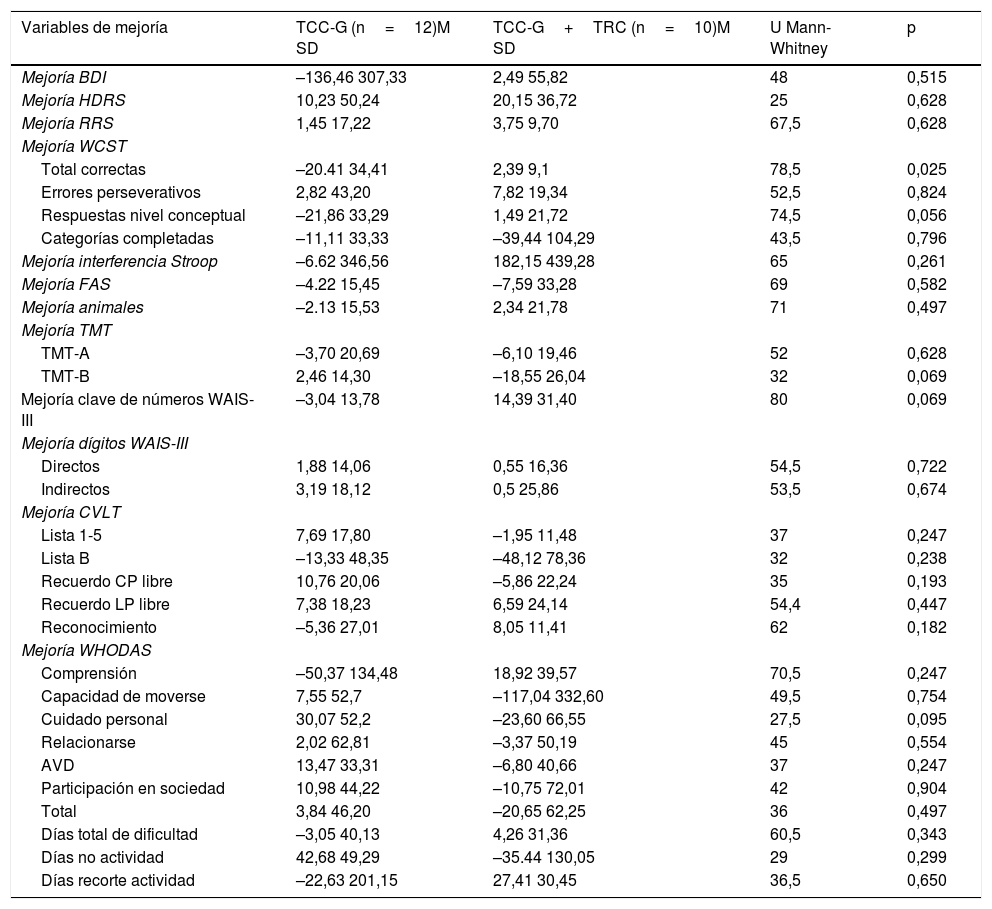Los trastornos depresivos son una de las principales causas de discapacidad global y la presencia de déficits cognitivos se relacionan con un peor pronóstico. Dado que la rehabilitación cognitiva en este trastorno está poco estudiada, y menos sus efectos a largo plazo, nuestro objetivo fue investigar sus beneficios en la mejora cognitiva y funcional de estos pacientes. Veintidós participantes fueron asignados aleatoriamente a: a) terapia cognitivo conductual grupal; y b) terapia cognitivo conductual grupal+terapia de rehabilitación cognitiva. Se realizó una evaluación al inicio del tratamiento, a los 3 y 6 meses de la finalización del mismo. Los participantes asignados al grupo con terapia de rehabilitación cognitiva mejoraron más su funcionamiento ejecutivo y estos efectos se mantenían en el tiempo. Sin embargo, no se encontraron diferencias entre ambos grupos en funcionamiento psicosocial. Estos resultados apoyan la importancia de seguir investigando la utilidad de la rehabilitación cognitiva en la recuperación de pacientes con trastornos depresivos.
Depressive disorders are one of the main causes of global burden disease and cognitive impairment is associated with worse prognosis. Cognitive Remediation Therapy (CRT) and its long-term effects are understudied; our aim is to investigate the benefits of CRT in the cognitive and functional improvement and maintenance of theses patients. Twenty-two participants were randomly assigned to: a) Group Cognitive Behavioral Therapy (CBT-G) and b) CBT-G plus CRT. Patients were evaluated before treatment, at 3 and 6 months after the end of the treatment. Participants assigned to the TRC group improved more in executive function and its effects remain over time. However, no differences were found between groups in psychosocial functioning improving. These results support the relevance of continue investigating the usefulness of CRT in depression patients recovery.
Artículo
Comprando el artículo el PDF del mismo podrá ser descargado
Precio 19,34 €
Comprar ahora




